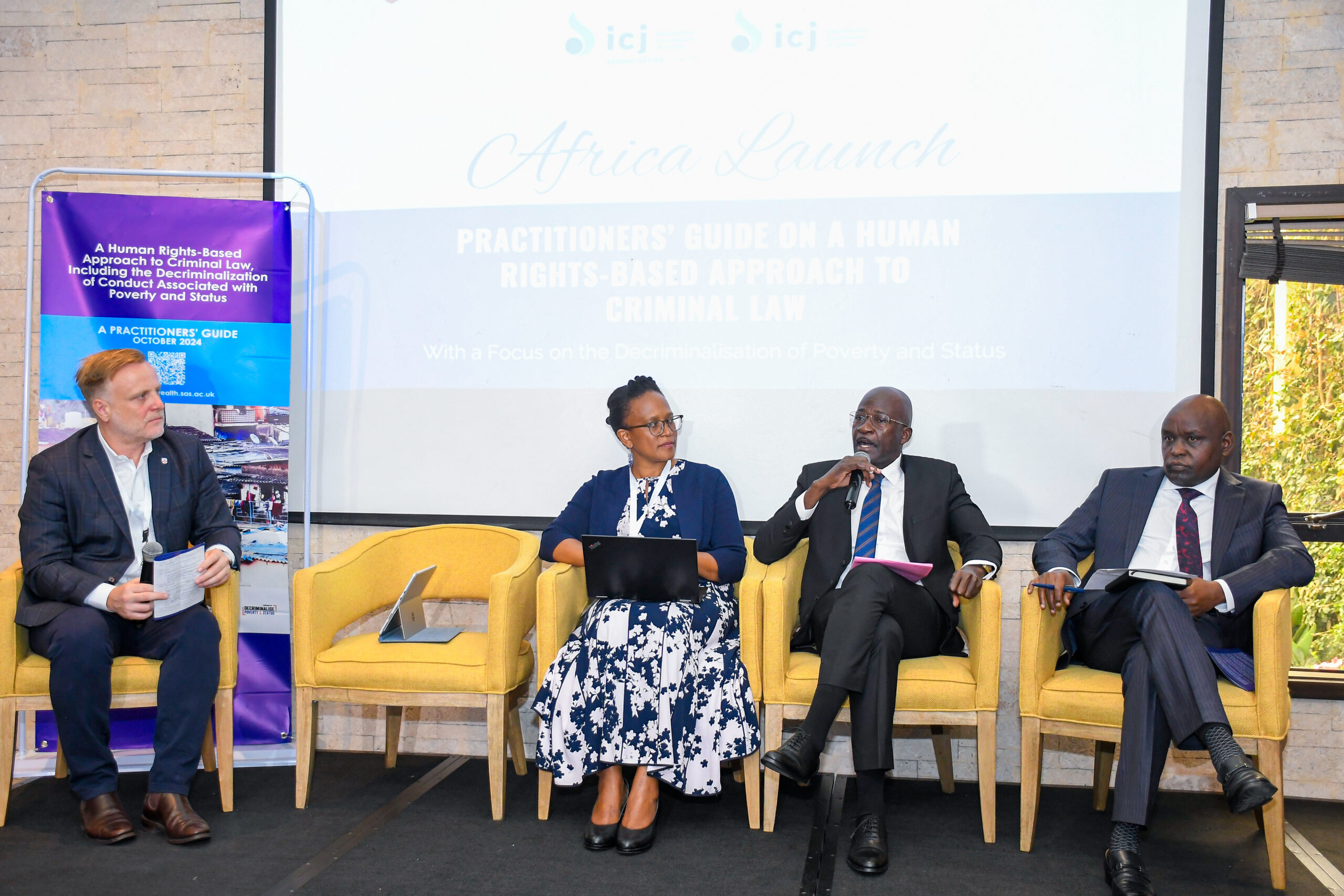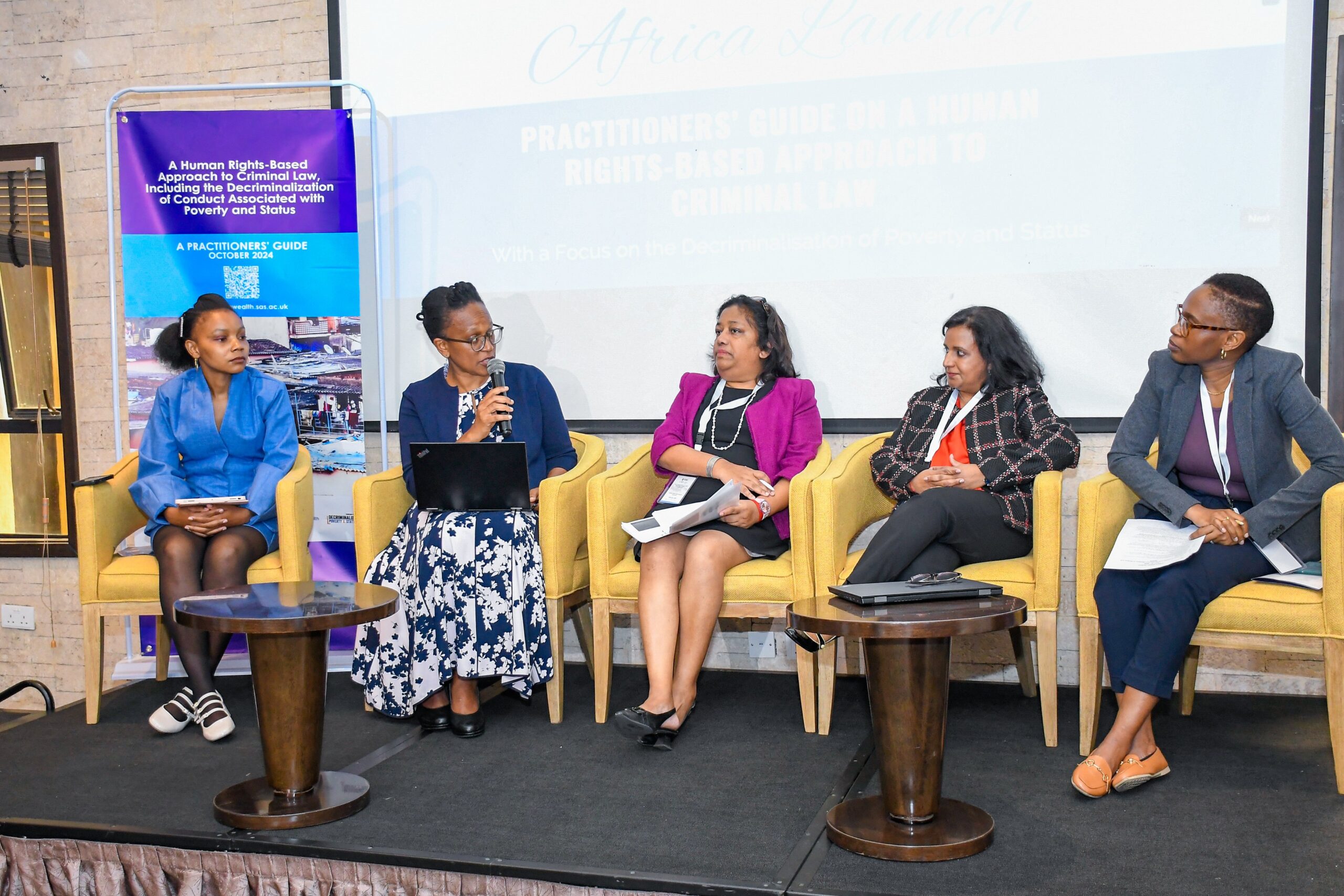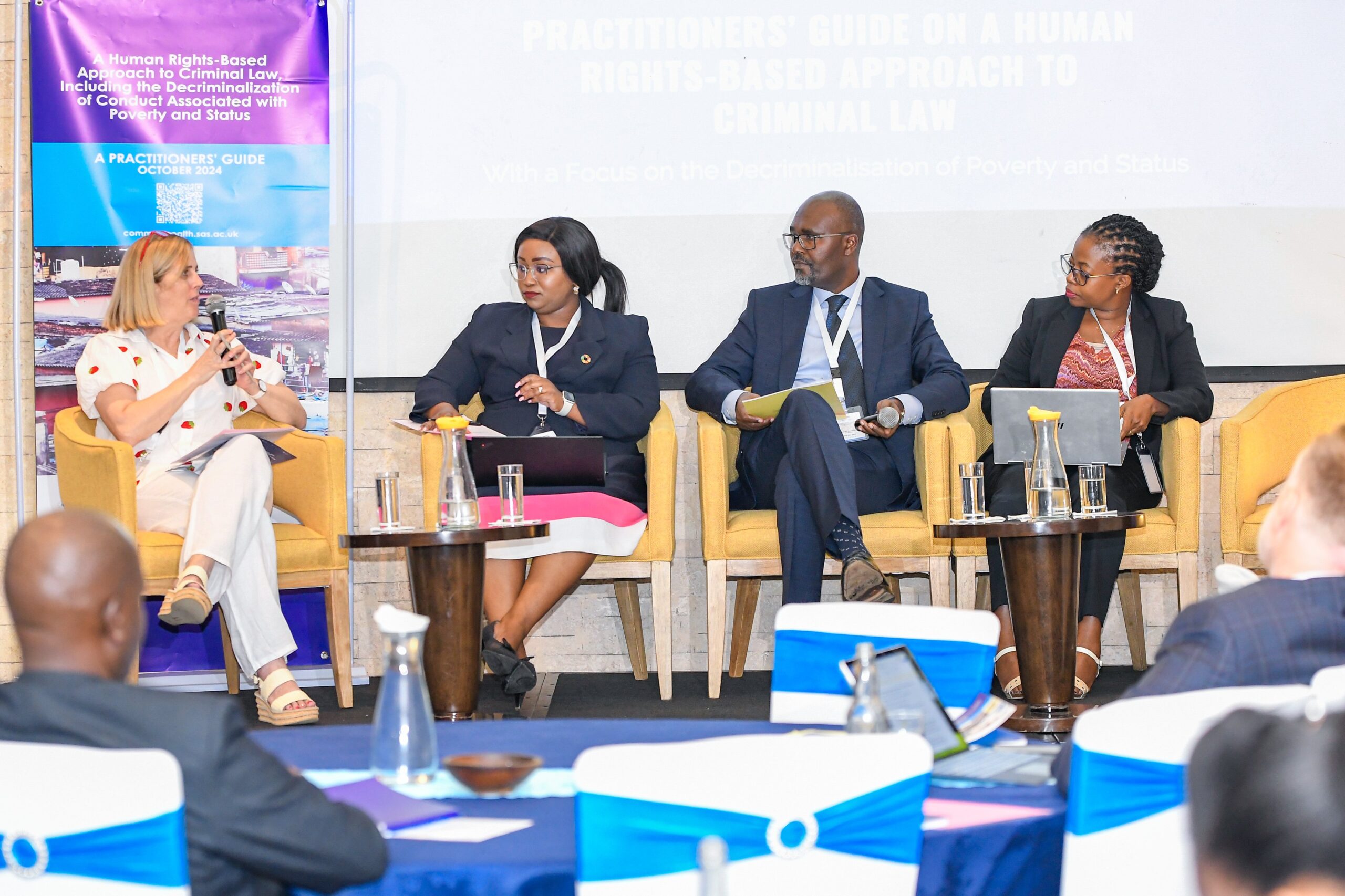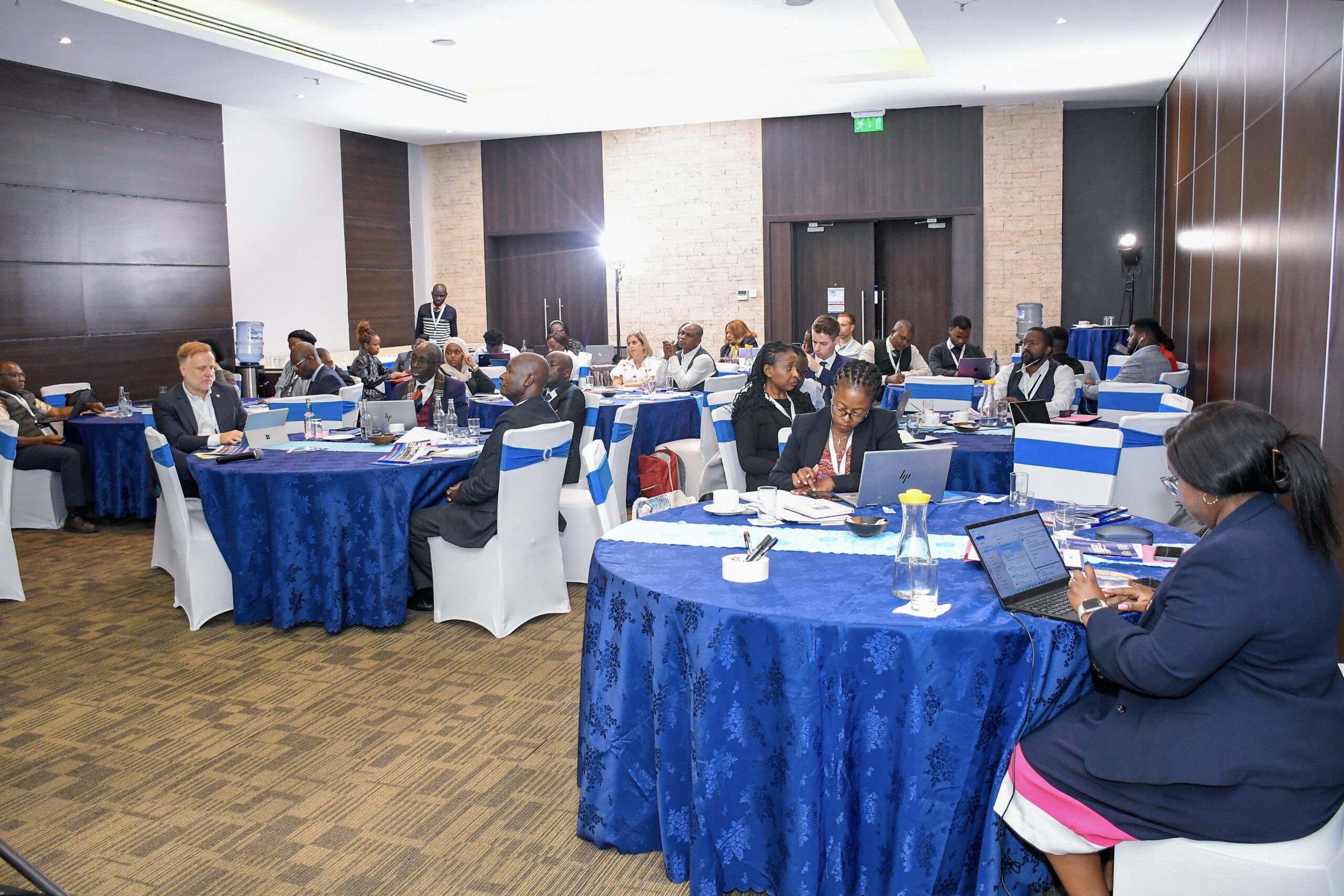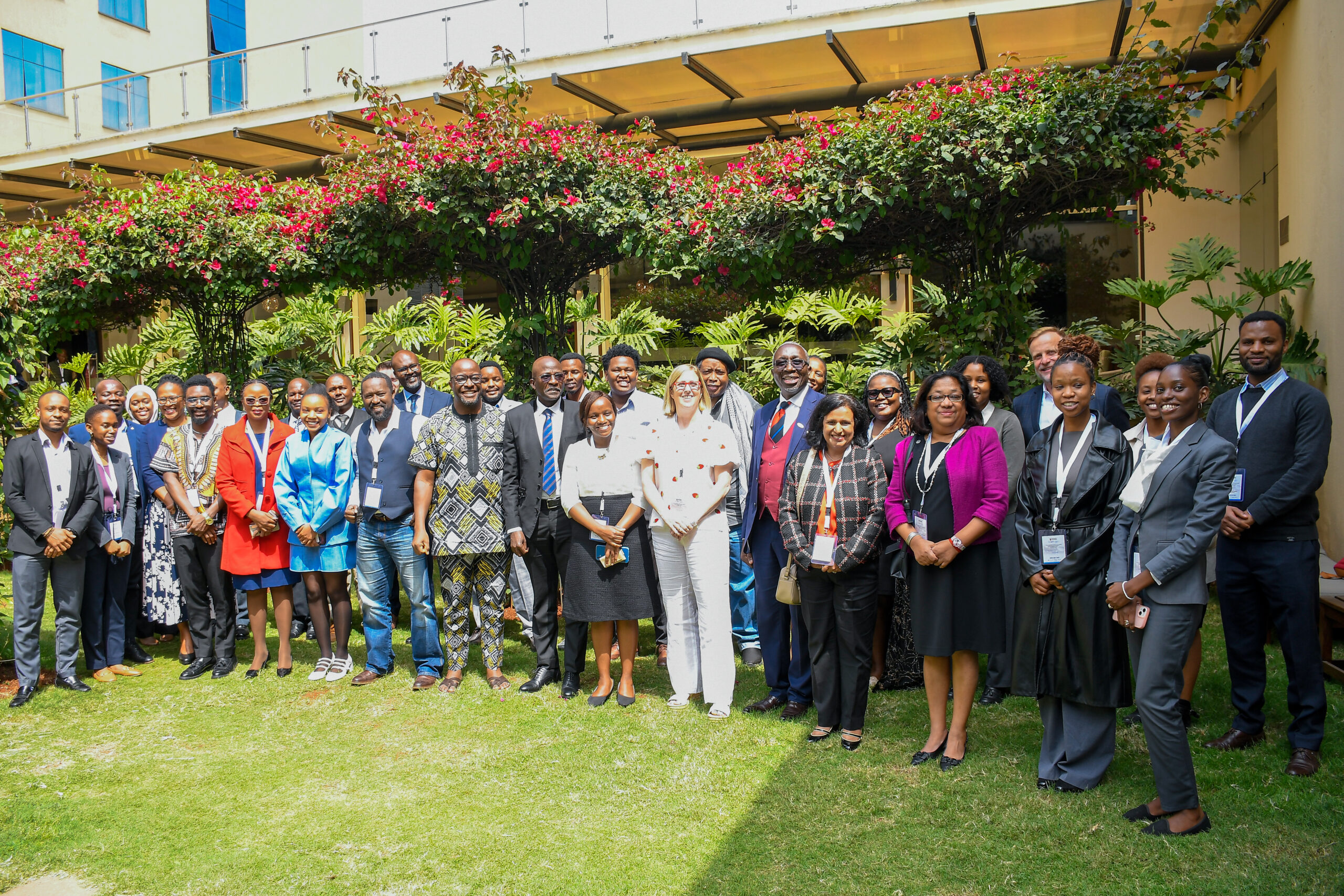The International Commission of Jurists (ICJ)—jointly with the Institute of Commonwealth Studies (ICwS) at the University of London and the Commonwealth Secretariat (ComSec)—has held the African launch of its Practitioners’ Guide: “A Human Rights-Based Approach to Criminal Law, Including the Decriminalization of Conduct Associated with Poverty and Status”. The Guide provides a clear, accessible and operational legal framework for applying human rights principles to criminal law to address its misuse in criminalizing, punishing, stigmatizing and denying services and rights to individuals – particularly those hailing from already marginalized communities—solely for exercising their human rights guaranteed under international human rights law.
Lawyers, judges, policymakers, civil society representatives and human rights advocates gathered on 29 July 2025 in Nairobi, Kenya, for the Africa Regional Launch of the Practitioners’ Guide.
The event marked a significant milestone in the regional rollout of the Guide, following its prior global launch at the 2024 Commonwealth Heads of Government Meeting in Samoa in October last year. The Africa launch was attended by individuals from many different African countries, and brought together voices from across the continent to reflect on the Guide’s relevance to African legal systems and to discuss strategies for regional implementation.
The Practitioners’ Guide responds to the global prevalence of repressive criminal laws that continue to be applied, including across Africa, and have a negative impact on health, equality and other human rights, particularly those of already marginalized individuals and communities.
“Criminal justice systems across Africa continue to uphold or reenact colonial-era laws that perpetuate unequal power relations by criminalizing already marginalized communities. The Practitioners’ Guide offers practical legal tools to abolish such discriminatory laws. If all justice actors, governments and civil society collaborate and pursue the decriminalization of conduct associated with poverty and status, we can build a just and rights-based criminal justice system that allows us to address the real root causes of complex, structural social challenges. It is up to us to make sure that the Guide becomes a living document,” stated Kaajal Ramjathan-Keogh, ICJ’s Africa Director
Drawing on legal analysis, case studies and regional consultations—including a dedicated African consultation held in 2024—the Guide aims to serve as a reference and practical guidance to justice sector actors and others in pursuing legal advocacy and reform efforts for the review and repeal of discriminatory laws that are antithetical to human rights.
Key features of the Guide include:
- A human rights-based approach to criminal law, operationalized in useful guiding questions, drawing on general principles of criminal law and international human rights law and standards, as outlined in “The 8 March Principles for a Human Rights-Based Approach to Criminal Law Proscribing Conduct Associated with Sex, Reproduction, Drug Use, HIV, Homelessness and Poverty”, published by the ICJ in 2023;
- A comparative analysis of domestic laws criminalizing conduct associated with poverty and status, such as those criminalizing “vagrancy”, “loitering”, “begging”, informal trading or homelessness, and the impact of such laws on human rights;
- A compilation of the growing body of encouraging domestic and regional legal developments and jurisprudence—including examples from the African Human Rights System—for advocates to draw on in seeking to challenge the lawfulness of laws penalizing conduct associated with poverty, homelessness and status; and
- Specific recommendations for reform efforts by judges, prosecutors and other law enforcement officials, legislators and civil society, giving guidance on how to contribute to the decriminalization of conduct associated with poverty and status.
Background
The Guide highlights how many African jurisdictions continue to enforce colonial-era laws that criminalize conduct associated with poverty and/or status despite their incompatibility with constitutional protections and human rights standards. These laws often lack legal clarity, violate principles of legality and proportionality and have a discriminatory and disproportionate impact—particularly on women, children and youth, people with disabilities, informal traders and other marginalized individuals and groups. They also lead to a “double victimization” of such persons by violating their rights through criminalization of their efforts to earn a living once States have already failed to ensure livelihood opportunities are available to them to secure minimum living standards.
By mapping relevant international and regional instruments, jurisprudence from African courts, and legislative developments, the Guide offers practitioners in Africa a resource that is both principled and contextually grounded.
The regional launch of the Guide for Africa was convened by the ICJ, ICwS, ComSec and ICJ Kenya as part of the Global Campaign to Decriminalise Poverty and Status, which is a coalition of organizations from around the world that advocate for the repeal of laws, reform of policies and changes in practices that target people based on poverty, status or for their activism.
The event featured remarks from leaders of the convening organizations, discussions on the need for a human rights-based approach to criminal law in Africa and how the Practitioners’ Guide can be implemented as well as a reflection on how the global campaign has contributed to popularizing and advancing a human rights-based approach to criminal law.
Download
The Practitioners’ Guide “A Human Rights-Based Approach to Criminal Law, Including the Decriminalization of Conduct Associated with Poverty and Status” is available here.
